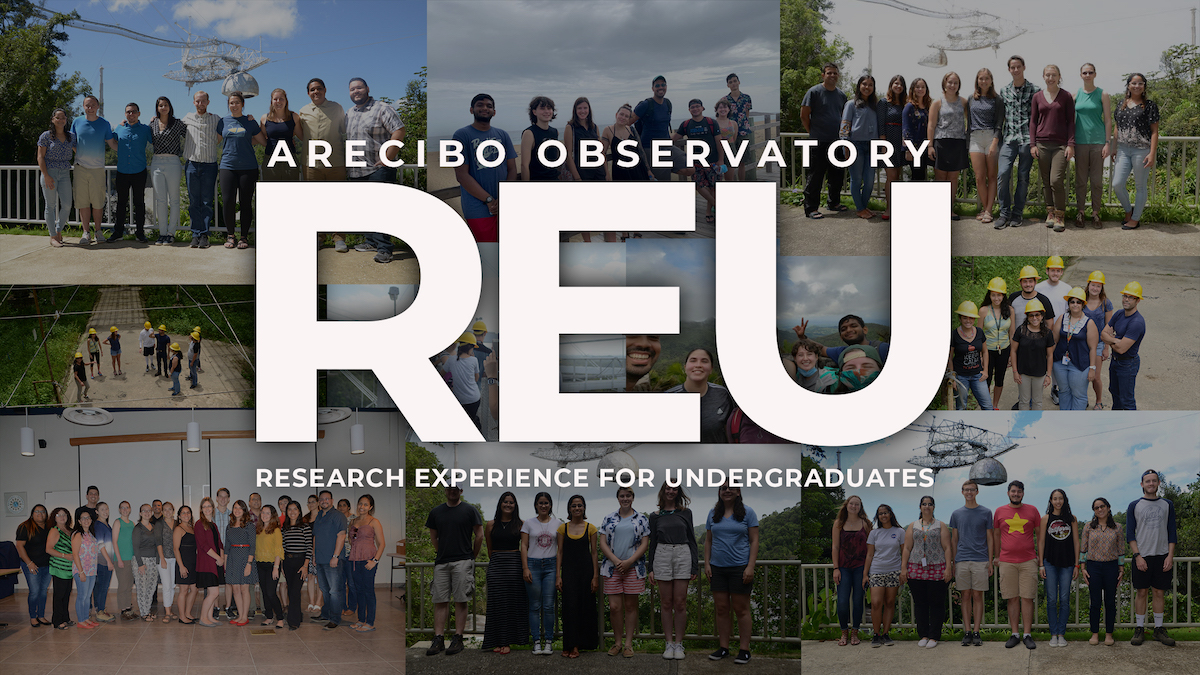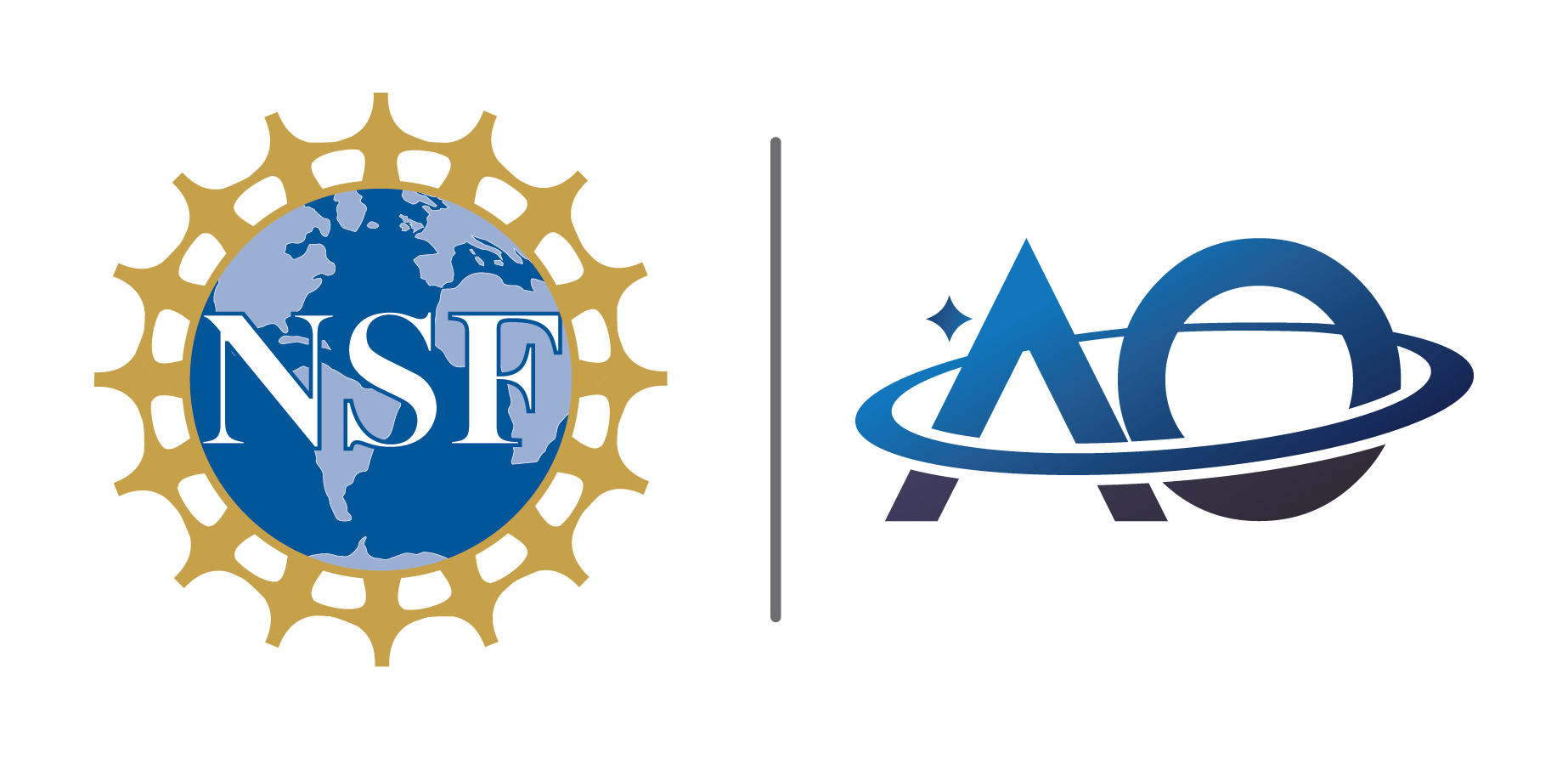- Leter from Dr. Julie Brisset (Principal Investigator of the Arecibo Observatory)13 Sep, 2022
- Arecibo Deputy Principal Scientist to Explore the Cosmos with the JWST02 Sep, 2022
- Letter from the Director22 Aug, 2022
- Piercing through the Clouds of Venus with Arecibo Radar17 Aug, 2022
- Summer greetings from the Facilities and Operations Team!17 Aug, 2022
- Arecibo Observatory at the Small Bodies Assessment Group12 Aug, 2022
- Meet the 2022 Arecibo Observatory REU students!11 Aug, 2022
- Meet Luis R. Rivera Gabriel, Research Intern in the Planetary Radar Group09 Aug, 2022
- Updates from the 2022 CEDAR Workshop in Austin, TX09 Aug, 2022
- Insights into the AAS Conference from AO Analyst Anna McGilvray08 Aug, 2022
- American Astronomical Society’s 240th Meeting: Plenary Lecture Building the Future of Radio Science with the Arecibo Observatory by Dr. Héctor Arce. 28 Jul, 2022
- TRENDS 202227 Jul, 2022
- Advancing IDEA in Planetary Science 27 Jul, 2022
- The Arecibo Observatory: An Engine for Science and Scientists in Puerto Rico and Beyond27 Jul, 2022
- Cryogenic Frontend work for the 12m telescope entering phase II21 Jul, 2022
- Remote Optical Facility Updates20 Jul, 2022
NSF REU program at Arecibo receives funding for next 3 years
Byelliot.gonzalez23 March 2022 Education

| Education |
The Research Experience for Undergraduates (REU) program at the Arecibo Observatory has received funding from the National Science Foundation for the next three years, continuing its decades-long tradition of training scientists and engineers at the facility each summer. The Arecibo Observatory was one of the first astronomy REU sites and has been hosting the program since 1987, though AO has operated undergraduate internship programs onsite since 1972.
The 10 week summer internship program provides students the opportunity to actively participate in cutting-edge scientific research. The main goals of the program are to educate and train the next generation of scientists and engineers in the areas of radio astronomy, solar system studies, and space and atmospheric science, as well as the mechanical engineering and computing application needed to support the scientific research.
The REU program at the Arecibo Observatory is unique in its ability to train interested students from the local Puerto Rican communities, and introduce students from the mainland of the U.S. to the Puerto Rican community and culture, of which the Arecibo Observatory is a valued entity.
Selected students will have the opportunity to work directly with AO staff in the following research areas:
Emission and rotation of bright pulsars (Mentor: Dr. Benetge Perera)
Initiation and Propagation of Coronal Mass Ejections (Mentor: Dr. P.K. Manoharan)
Resonance and Rayleigh lidars at Arecibo to study the Mesosphere and the Lower Thermosphere region of the Earth’s atmosphere. (Mentor: Dr. Shikha Raizada)
Investigation on the Underlying Mechanisms for Positive Response of the Ionosphere to geomagnetic storms (Mentor: Dr. Selvaraj Dharmalingam)
Comparison of local Saharan Air Layer distribution with satellite observation (Mentor: Dr. Jens Lautenbach)
Asteroid Radar (Mentors: Dr. Flaviane Venditti, Dr. Sean Marshall, Dr. Maxime Devogele)
Data Catalog and Machine Learning Environment (Mentor: Eng. Jorge Herrera)
Modern web development techniques applied to scientific data management (Mentor: Francisco Torres)
Interested in applying? The current deadline for applications is April 13!
Article written by Dr. Tracy Becker - AO Collaborator / SwRI Research Scientist
Contact: tbecker@swri.edu
|
Arecibo Media Contact |
Co-Principal Investigator |
Keywords: arecibo, observatory, research, experience, undergraduates, reu, education

